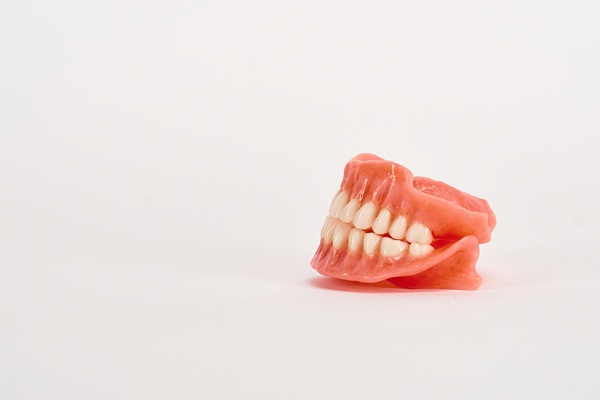How Long Does Dental Bonding Last?

Dental bonding is a non-invasive way to deal with a variety of dental issues. It is quite popular in cosmetic dentistry, and it can be used to fix problems such as stained and discolored teeth, broken and chipped teeth, cavities and gaps between teeth.
During the process, the dentist applies a tooth-colored composite to one or more teeth that need to be repaired. An etching solution is typically used on the teeth being restored prior to the application of the composite — it roughens the tooth's surface, making it easier for the resin to stick to it.
Some of the issues that are fixed with dental bonding can also be repaired with veneers or crowns. Either of these provides a more permanent solution, but they are also pricier options than having a tooth restored with composite resin.
Getting the most out of dental bonding
Repairs made with composite resins will not last anywhere as long as a crown or veneers, but they can last up to 10 years if the patient practices good oral hygiene. The location of the tooth repaired also affects the longevity of bonding. Repairs made on front teeth tend to last longer than those made on molars that continuously have to deal with incredible forces.
Habits like teeth grinding can also shorten the lifespan of repairs made with composite resin.
A tooth that has been restored with dental bonding will not be as durable as a real one. Avoiding habits that can damage teeth becomes even more critical after composite bonding. Patients should:
- Avoid biting on hard things like fingernails and ice
- Avoid opening packages with their teeth
- Practice good oral hygiene
- Eat healthily
- Avoid items that can stain teeth like red wine, coffee, tea and tobacco products. Composite resins are more prone to staining than real teeth
How long a tooth that has been repaired with bonding lasts is entirely up to the patient. Those who follow the tips listed above should be able to get over 10 years out of the repairs.
Alternatives to dental bonding
There are a couple of alternatives to dental bonding: veneers and dental crowns.
Veneers
These thin, tooth-shaped covers are cemented to the front of a tooth. They serve to hide any imperfections on the tooth it is covering. Veneers are used to deal with many of the same issues composites are used for, and they are a more invasive treatment than tooth bonding. However, they can last up to 10 years longer than composites.
Crowns
A dental crown provides even more protection than veneers. Also known as a cap, a crown covers the entire tooth, keeping it safe from all the irritants in the mouth. A crown restores the look of a damaged tooth and its function. It is also the longest-lasting solution as it can last over 25 years when properly maintained.
Get the treatment you need
Dealing with an oral problem that requires composite bonding or one of its alternatives? Contact our Peabody office today to explore your options.
Request an appointment here: https://www.northside-dentalcare.com or call Northside Dental Care, PC at (978) 206-7077 for an appointment in our Peabody office.
Check out what others are saying about our services on Yelp: Read our Yelp reviews.
Recent Posts
Missing one tooth or multiple teeth can make it harder to perform everyday functions. It can also make you feel self-conscious about smiling. Dental implants not only restore the function and appearance of your smile, but they also help restore your everyday oral health.Dental implants are artificial tooth roots surgically placed in a person's jawbone.…
Wear and tear make denture repair inevitable in the long run. This is why a general dentistry practice that deals with dentures should have in-house facilities for minor and moderate repairs. The practice should also have quick access to a dental lab in case a patient needs major repairs for their dentures. Knowing when to…
Dental implants can replace missing teeth using a combination of screwlike metal posts and dental crowns, bridges, or dentures. Many consider implants state-of-the-art teeth replacement. Though dental implants can be an effective way to restore your smile, it is important to ensure they are right for you and understand how they work.Dental implants can support…
For many individuals with missing teeth, dental implants are an effective way to restore the appearance and function of their smile. However, like any medical procedure, there are potential risks and complications associated with getting dental implants. While these risks are relatively rare, it is important for patients to be aware of them before undergoing…


